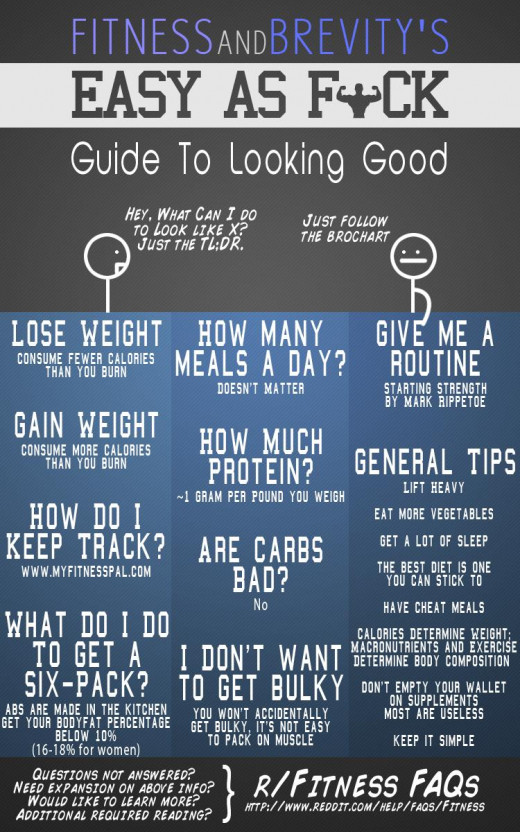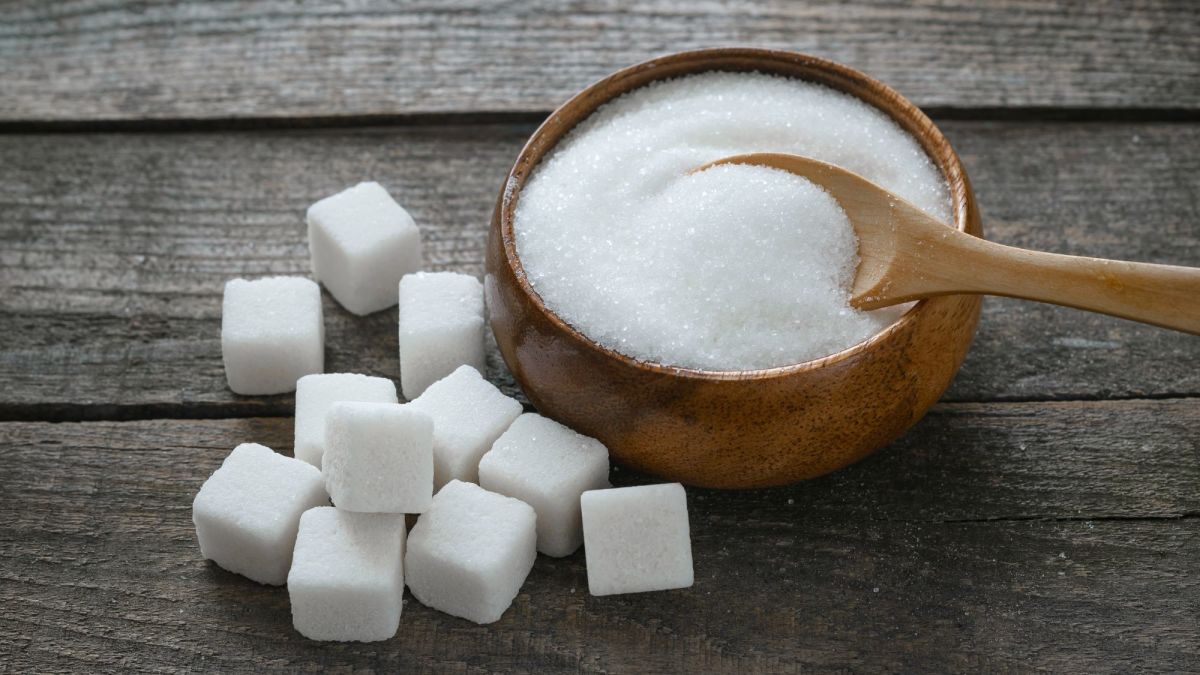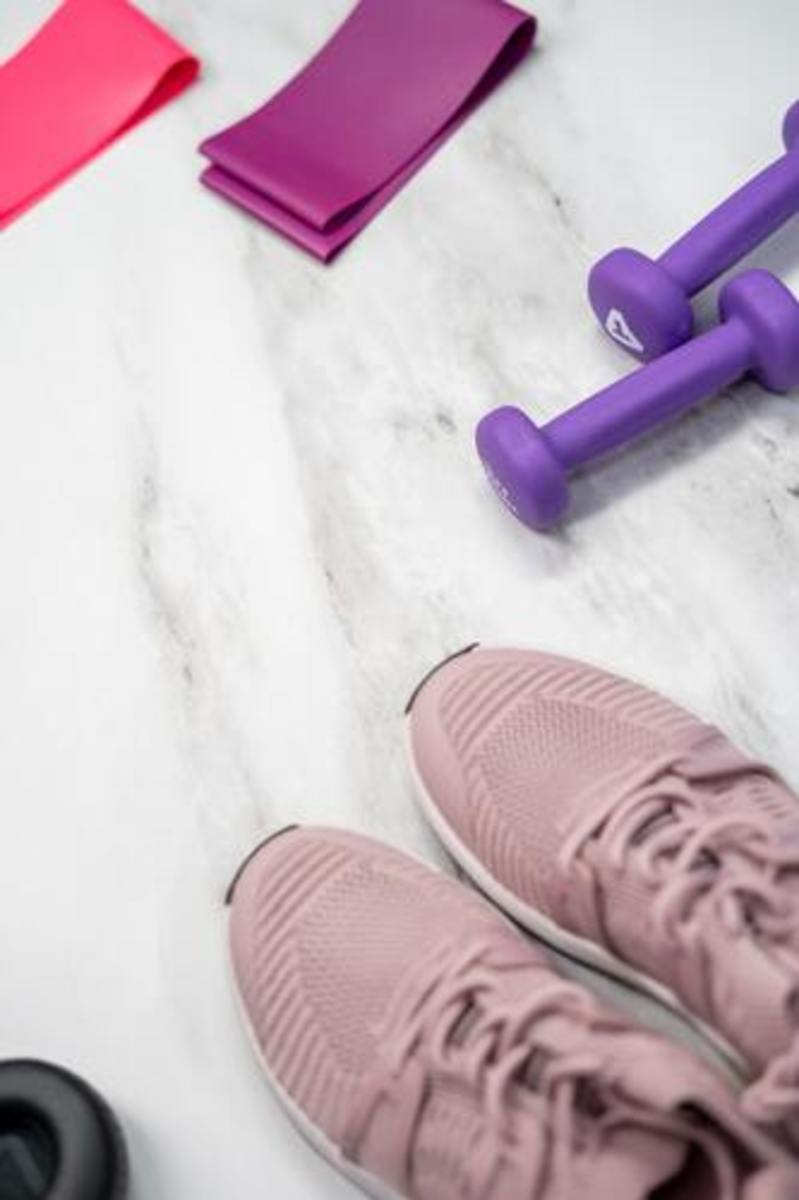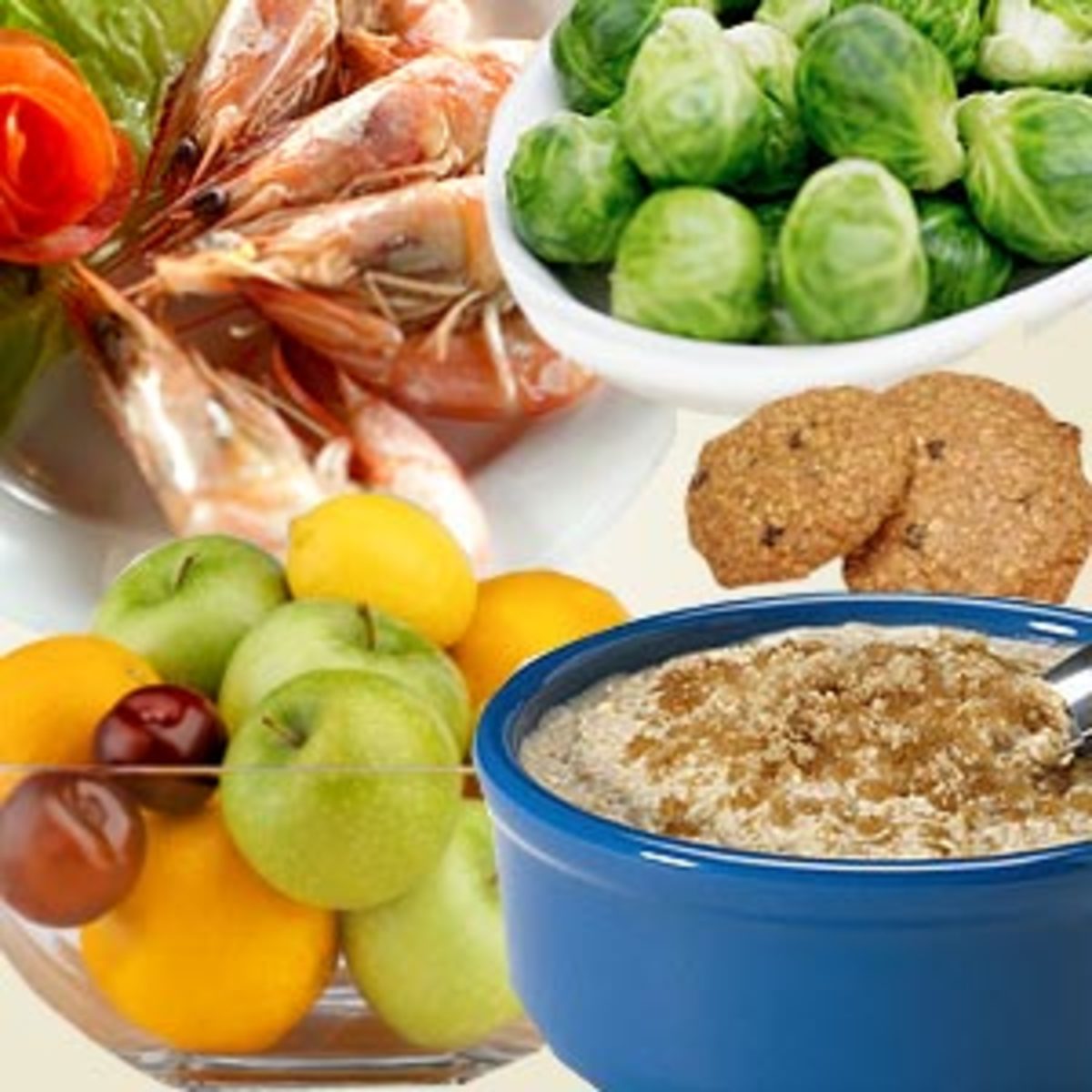8 Tips For Hard-Gainers
Some people can gain muscle by merely looking at a loaded bar of weights whilst for others it’s a constant struggle despite their best efforts.
It doesn’t have to be that way – with a smart approach, dedication and consistency over the long run even the most ectomorphic individual can achieve outstanding results.
Here are some tips for the hard gainers out there who aren’t seeing the results they want.
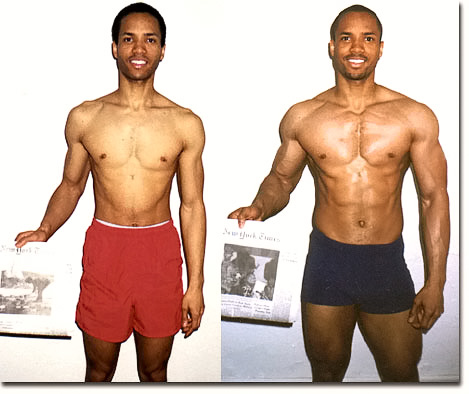
Find your daily caloric requirements
It’s generally recommended that you consume 300-500 calories over your daily maintenance caloric amount per day.
To calculate your maintenance level you can use a Total Daily Energy Expenditure (TDEE) calculator or use a bodybugg.
Record your food intake
You might think you’re eating a lot but when you plug in the numbers you may still be under-eating - keeping a record of the foods you consume using applications like DailyBurn or MyFitnessPal is remarkably easy to do and will save you stressing about whether you’re eating enough.
Do the minimum necessary training
The less unnecessary training you do the less calories you need to consume to go over maintenance.
If possible limit cardio training - only do it if you need to for sports training. If you want to limit fat gains (not that it should be an issue if you’re a hard gainer), just consume less calories over maintenance.
Same goes for weight training – don’t do tons of unnecessary exercises or train more than 4 days per week. Focus on those that give the biggest bang for buck, which is generally the compound exercises that involve you lifting the most weight.
Also make sure that you are achieving progressive overload (adding more weights to the bar and/or reps every session) – this is the key to creating the training effect necessary to stimulate muscle growth.
Starting Strength by Mark Rippetoe is a good example of a program that focuses on exercises that give the biggest bang for buck and encourages progressing overload to occur.
Eat more protein
The general recommendation is that individuals participating in heavy resistance training should consume 0.8-1g of protein per lb of bodyweight – there’s no real benefit in consuming additional protein beyond that.
If you struggle to achieve this with the whole foods that form the crux of your diet, adding protein rich meal replacement (MRP) shakes between meals is a good strategy.
For a list of good protein sources click here.
Drink more calories
Calories in liquid form are easier to consume than solid foods.
That doesn’t mean you should only consume liquids or start loading up on soda, powerade or energy drinks and the like, but rather increasing your caloric intake through an additional protein rich meal replacement drink – such as the below example, which offers roughly 500 calories and 40g of protein total:
Choc-Banana-PB Weight Gain Shake
- 1 glass of whole milk
- 1 serving of chocolate protein powder
- 1 tbsp of peanut butter
- 1 banana chopped
Combine the above ingredients in a blender, blend and enjoy!
Eat more caloric dense foods
Eating foods that are more energy dense will make it easier to hit your daily caloric total.
Some examples include milk, cheese, ground beef, pork, pasta, bread, nuts and oils.
Eat foods you like
It makes sense that it’s easier to eat foods you like than food you are not that into.
Adding some ‘junk food’ is OK – just make sure it fits in your daily macronutrient and caloric targets. If it results in you consistently way overshooting your caloric targets, you will likely be adding a lot of unwanted lard to your physique.
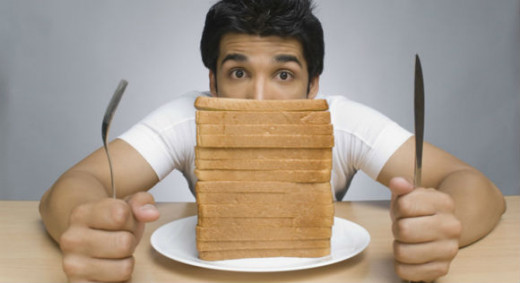
Be realistic
Typical accounts of muscle gain are overstated for marketing hype i.e. 20lbs in 4 weeks - a lot of the time the extra weight gained in such practices is due to water retention and often the case studies use examples of de-trained individual who lost a lot of muscle mass and gained it back (‘muscle memory’).
Gaining weight at a rate of 0.5-1lb per week is a good target to aim for the non steroid assisted trainee – if you try gaining too fast you are probably gaining a lot of excess lard in the process.
NOTE: please keep in mind these tips are designed for people that have trouble adding muscular weight – always consult your doctor before assuming a new dietary, supplemental or exercise regime.
For more exercise and fitness articles by the author click here.
